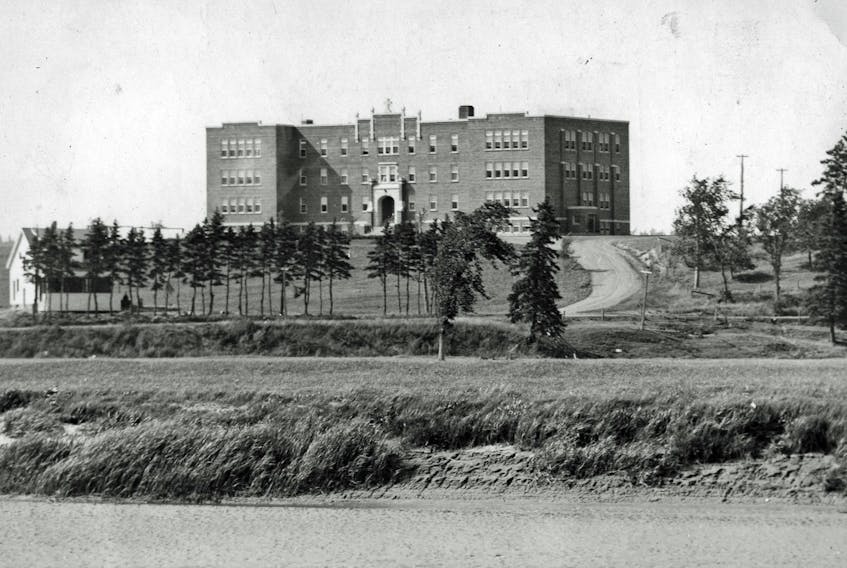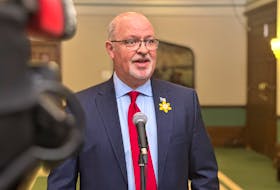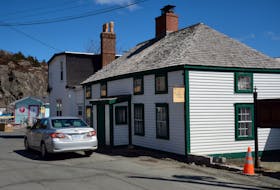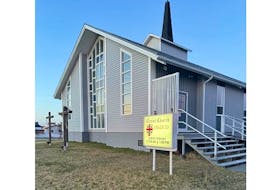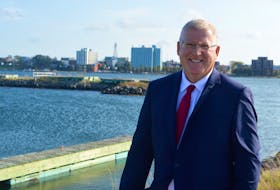The land where the Shubenacadie Residential School once stood is going to be a Canadian national historic site.
The designation was included on Tuesday as part of a larger announcement from the National Centre for Truth and Reconciliation (NCTR), based at the University of Manitoba, and the federal government that the residential school system will be recognized as a matter of national significance.
Along with the one in Shubenacadie, a school in Portage La Prairie, Manitoba, will also be a national historic site.
The Nova Scotia school took in children from across the Maritimes. It opened in 1930 and closed in 1967.
Sipekne'katik First Nation resident and residential school survivor Dorene Bernard said it means a lot, not only to survivors in the Maritimes who went to the Shubenacadie school, but those across the country.
“My parents went to that school, and my grandmother,” Bernard said. “They had large families. My mother had 11 siblings. My father had more. And they all went to the residential school. And their children. So I'd say there's almost 100 people in just my family – my relations – my extended family who went to residential school. So I think I speak for them as well, to say that today is a historic event. It's historic that we can see now that more will be put into the education of the impacts of the residential school and more will be put into the healing and the reconciliation that's needed for healing.”

A video presentation as part of the online announcement reflected on the more than 150,000 First Nation, Inuit and Metis children taken from their families and placed in the residential school system across Canada in a deliberate attempt at assimilation.
The video said the first church-run schools predated the founding of Canada itself, the first one opening in the 1830s. Government participation followed in the 1880s and continued until the last one closed in the 1990s. Roman Catholic, Anglican, United, and Presbyterian churches were involved in running the schools.
Children suffered emotional, physical and sexual abuse, separation from their families and other trauma.
The designation was co-developed by the NCTR, Parks Canada and the Historic Sites and Monuments Board of Canada.
It meets one of the Truth and Reconciliation Commission's Calls to Action, set out in 2015 to redress the legacy of the residential schools and begin the process of reconcilitation. They can be seen online here.
Number 79 called for national commemoration of the sites and their legacy.
In 2008, then-prime minister Stephen Harper read an official apology in the House of Commons for Canada's role in the system.
Bernard said the designation of the sites in Nova Scotia and Manitoba may open the door for more historic sites across the country, furthering the education of Canadians and making sure the dark chapter is never forgotten.
“Commemoration, I think is really important because there aren't a lot of survivors left,” the 64-year old grassroots grandmother and water protector said. “Many have already journeyed on to the spirit world – and many who championed our cause for reconciliation and for truths to come out, and for documentation to put this into the education system and to acknowledge the genocide and the racist policies of the government that brought us to where we are today.
“We are still impacted by the same policies and we are still dealing with injustice, racism, systemic racism and violence, and of course many of the impacts of residential schools today.”
Maybe this will spur the change that Bernard said she thought would come after Harper's apology.
“It's not words that we're looking for, it's actions, it's the change that's needed for all Indigenous people,” she said.
“I have been doing a lot of interviews … and I just watched the announcement, and I think my emotions are not reflective of everyone, but I believe a lot of our people who have left us, they inspired us to continue to fight for what is right and what is just. And I think about them and I wish they were here to see, you know, to witness. It's like many of our survivors who passed on before there was ever an apology or compensation or anything. And I think about the ones that are still here – the young people like our generations that are in front of us and what this will mean to them. And I'm hoping they'll have a good life, and what we are doing now is paving that way for them to (have) understanding for what is needed today – empathy, understanding, love.”
The virtual announcement, hosted by Ry Moran, director of the NCTR, opened with a prayer, followed by the video history and then presentations from representatives of the federal government, First Nations leaders, and survivors, including Bernard, on behalf of those who went through the residential schools.
Jonathan Wilkinson, minister of environment and climate change and the minister responsible for Parks Canada, led the comments from government.
"From this day forward, the residential school system will be designated as an event of national historic significance, which will help to educate all Canadians on the system and its consequences and ensure that this part of our history is never forgotten or repeated," Wilkinson said.
Carolyn Bennett, minister of Crown and Indigenous relations and Marc Miller, minister of Indigenous services also spoke during the online announcement.
Perry Bellegarde, national chief of the Assembly of First Nations, Natan Obed, president of the Inuit Tapiriit Kanatami, and Andrew Carrier, of the Metis National Council, and Dennis Meeches, chief of the Long Plain First Nation in Manitoba, also spoke.
Bernard said a lot of people suffered and worked extremely hard to reach this point.
“There's so many people to thank, so many people that I see that were a part of this, so many to mention. But I want to thank our residential school survivors for their love and their courage, their tenacity, their resilience – all the things that brought us where we are today.”
“We couldn't get where we are today without them, so thank you.”

